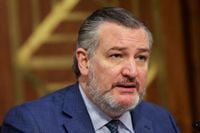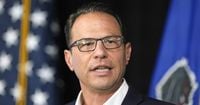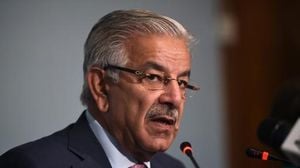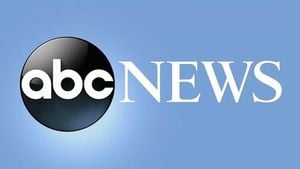On a brisk September evening in Los Angeles, a crowd gathered outside the El Capitan Entertainment Centre, their voices raised in protest and their signs held high. The reason? The abrupt removal of "Jimmy Kimmel Live!" from the airwaves—a decision that has ignited a national debate about free speech, government power, and the boundaries of political influence in American media.
The controversy began on September 10, 2025, when conservative activist Charlie Kirk was fatally shot in front of an audience of roughly 3,000 at a university event in Utah. The alleged shooter, 22-year-old Tyler Robinson, was apprehended after a 33-hour manhunt and charged with aggravated murder. The killing sent shockwaves across the political spectrum, quickly becoming a lightning rod for partisan commentary and conspiracy theories.
Jimmy Kimmel, the veteran late-night host known for his sharp wit and pointed political satire, addressed the tragedy on his show five days later. Kimmel accused supporters of the Make America Great Again (MAGA) movement of trying to mischaracterize Robinson’s motives and criticized former President Donald Trump’s public response to Kirk’s death. "The MAGA gang (is) desperately trying to characterise this kid who murdered Charlie Kirk as anything other than one of them and doing everything they can to score political points from it," Kimmel said, according to Al Jazeera. He went on, taking aim at Trump’s reaction: "This is not how an adult grieves the murder of someone he calls a friend. This is how a four-year-old mourns a goldfish."
The backlash from conservative media was swift and fierce. Within days, broadcasters Nexstar and Sinclair, both of which air Kimmel’s show on their affiliated stations, announced they were pulling "Jimmy Kimmel Live!" off the air. But the real controversy erupted when Brendan Carr, chair of the Federal Communications Commission (FCC) and a Trump appointee, publicly suggested that Disney-owned ABC—the show’s home network—could face regulatory hurdles if it did not take action against Kimmel.
Speaking on a conservative podcast, Carr delivered a pointed warning: Disney and ABC executives could handle Kimmel "the easy or the hard way," implying that failure to act would invite further scrutiny from the FCC. "These companies can find ways to change conduct and take actions on Kimmel, or there’s going to be additional work for the FCC ahead," Carr said, as reported by CNN. Just hours later, ABC suspended "Jimmy Kimmel Live!" indefinitely.
This move has drawn condemnation from across the political spectrum, including from some surprising corners. Senator Ted Cruz, a Republican and chair of the Commerce Committee, broke ranks with party orthodoxy to criticize Carr’s tactics. On his podcast, Cruz described Carr’s actions as "dangerous" and likened them to "mafioso" behavior, according to Politico. Cruz, who has often defended the Trump administration, warned against the use of government power to influence media decisions, saying, "This is not how a free society operates."
For years, Carr had built his reputation as a defender of the First Amendment, warning against government interference in free speech. He frequently denounced both Democratic and Republican efforts to pressure television and social media companies, describing such actions as "a chilling transgression of the free speech rights that every media outlet in this country enjoys." Carr even defended political satire as "one of the oldest and most important forms of free speech," and in 2024, the Supreme Court unanimously ruled that government officials cannot coerce private companies to suppress speech they dislike. Justice Sonia Sotomayor, writing for the court, stated, "Government officials cannot attempt to coerce private parties in order to punish or suppress views that the government disfavors."
Yet Carr’s recent actions appear to contradict his own record. According to a CNN review, Carr had previously lambasted Democrats for sending letters to cable providers questioning their carriage of conservative news channels. "Censorship isn’t just about silencing words—it is about controlling ideas and replacing robust debate with the cement of orthodoxy," Carr wrote in 2024. Now, critics argue, he’s wielding the very government power he once warned against to silence a political opponent.
The legal and constitutional stakes are high. The First Amendment of the U.S. Constitution explicitly protects free speech from government interference, stating, "Congress shall make no law... abridging the freedom of speech, or of the press." In 1963, the Supreme Court ruled that the government cannot create a "system of informal censorship" by threatening private companies, and last year’s decision reinforced that government persuasion must not cross into coercion.
Ronnie London, general counsel for the Foundation for Individual Rights and Expression, told PolitiFact that Carr’s actions are "a classic case of unconstitutional jawboning," referring to the improper use of government threats to pursue policy goals. The FCC’s own website affirms, "The public interest is best served by permitting free expression of views. Rather than suppress speech, communications law and policy seek to encourage responsive ‘counter-speech’ from others."
Public reaction has been intense and divided. On September 18, hundreds of Kimmel fans rallied in Burbank, New York, and Hollywood, protesting what they saw as a violation of the host’s free speech rights. Democratic politicians, Hollywood stars, and fellow talk-show hosts have spoken out in defense of Kimmel and the First Amendment. Former President Barack Obama took to X (formerly Twitter) to share a series of articles and commentary, writing, "This commentary offers a clear, powerful statement of why freedom of speech is at the heart of democracy and must be defended, whether the speaker is Charlie Kirk or Jimmy Kimmel, MAGA supporters or MAGA opponents." Obama added, "This is precisely the kind of government coercion that the First Amendment was designed to prevent – and media companies need to start standing up rather than capitulating to it."
David Letterman, the iconic former late-night host, voiced his concerns at a New York event: "I feel bad about this, because we all see where this is going, correct? It’s managed media. It’s no good. It’s silly. It’s ridiculous." Democratic National Committee chairman Ken Martin condemned the FCC’s actions, calling it "a chilling record of restricting speech, extorting private companies, and dropping the full weight of the government censorship hammer on First Amendment rights." California Senator Adam Schiff echoed these sentiments, warning, "This administration is responsible for the most blatant attacks on the free press in American history. What will be left of the First Amendment?"
On the other side, conservative figures and Trump loyalists have celebrated Kimmel’s suspension. "Great News for America: The ratings challenged Jimmy Kimmel Show is CANCELLED," Trump posted on his Truth Social platform, adding, "Congratulations to ABC for finally having the courage to do what had to be done." Conservative podcaster Megyn Kelly accused Kimmel of falsely smearing the MAGA movement, writing, "Jimmy Kimmel got on the air and falsely stated as a fact that Charlie Kirk’s killer was MAGA, smearing an entire movement and Trump in particular with a vile disgusting lie."
The battle over Kimmel’s show has become a flashpoint for a much larger conversation about the role of government in policing speech, the responsibilities of media companies, and the fragility of constitutional protections in a polarized era. With the FCC and Carr declining to comment further, and protests continuing in major cities, the fate of "Jimmy Kimmel Live!" remains uncertain—but the debate it has sparked shows no sign of abating.
As the dust settles, Americans are left to grapple with the uncomfortable question: when the guardians of free speech become its censors, who will stand up for the First Amendment?





